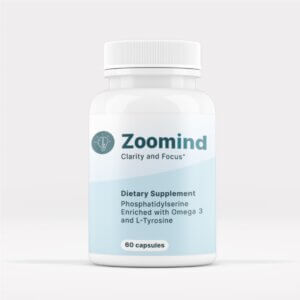In the US, the Food and Drug Administration (FDA) doesn’t specify that vitamins and food supplements sold across the counter must display an expiry date on the container.
A manufacturer may voluntarily choose to provide some expiry information. Still, in order to do this, it has to present supporting proof to the FDA, including stability testing, to establish that the expiration date and storage conditions meet FDA’s pharmaceutical regulations. So most manufacturers take the easier route and simply don’t stipulate any product expiry dates.
A question then arises for the millions of people buying OTC vitamins and supplements and all the other popular uncontrolled substances. How to stay safe in case the contents of a box or bottle of pills or powders have been on the shelf for too long? This is further complicated by the need to be able to dispose of any expired substances safely, without causing harm to the environment or danger to other people or animals.
Q1. What is a reasonable estimate of the safe shelf life for supplements?
This generally depends very much on the format of the supplement. Some can expire more quickly than others:
- Water-soluble vitamins (for example, vitamin B12 and vitamin C) lose their potency faster than fat-soluble vitamins (for example, vitamins A, D, E, & K).
- Probiotics contain live bacteria. If they aren’t stored in a refrigerator in warmer climates, they may only have a shelf life of about one year. In cold countries, where indoor temperatures don’t rise above 22-23 degrees, this may be longer

- Tablets and capsules generally have much longer shelf lives than oils and liquids.
- Supplements kept in dark cupboards will stay potent longer than ones exposed to bright light. Certainly, bright or direct sunlight will ruin any medication in a bottle much faster, even if it’s in a brown bottle.
Q2. Is there a difference between potency and safety?
In most cases, vitamins and supplements in pill or capsule form have a reasonably long safety window, generally extending to more than five to ten years. Very few supplements can become dangerous or poisonous if kept for a few years beyond the expected shelf life. Usually, these would already require some form of warning enforced by the FDA.
When it comes to the importance of retained potency, there is also a big difference between prescription drugs and supplements. Doctors have prescribed drugs that are necessary to correct your health problems, and failure to take the correct medicines in the proper strength could have serious, even life-threatening, consequences. Supplements may be beneficial and helpful but are hardly life-supporting. So, suppose a pill, oil or powder delivers less of the desired supplement. In that case, you may see a slightly less beneficial effect, but it’s not going to threaten your life.
Q3. What can affect the shelf life of supplements?
It’s not a simple question. Even for vitamins and supplements that have undergone the FDA’s expiration supervision and have a printed expiry date, many things can affect the potency of the supplements.
How you have stored the substances is a major concern. If they have been exposed to heat or humidity, for example, stored in a bathroom where hot water usage regularly causes high temperatures and steam, and lack of ventilation keeps these conditions active for long periods, they can quickly degrade.
Another factor is how the pills and powders are packaged. Once a package has been opened, the chances of external influences like the ones mentioned above affecting the contents are much higher. Sealed packaging that keeps humidity and fumes out will promote much longer shelf life.
Q4. When a manufacturer does give a “best by” date, what does that mean?
“Best by” is calculated by the supplement’s manufacturer as the date by which the potency of the pill or powder will not have fallen below the stipulated level. This usually means that the supplement generally delivers somewhat higher levels (but still within a safe range) when it is fresh, and the levels should not fall below what is stipulated on the package.
So if a Vitamin C supplement is quoted as delivering 500mg per pill, it is expected to be supplying at least that level up to the “best by” date.
Q5. What should you do with expired supplements?
Care for the safety of others and the health of the environment should be uppermost among your concerns. Simply throwing the supplement into the garbage may be convenient, but please think about what happens next. Kids and pets can open unattended bins, and the supplement may look tempting. Flushing down the toilet may feel like safe disposal. Still, you are adding chemicals into the water system, raising pollution levels in the lakes and rivers around you. It’s especially inappropriate if you live in a city where water is in short supply, and the council may have started a recycling system to keep supplies up.
The best way to get rid of expired supplements is to follow the guidelines for drug disposal suggested by the FDA. The following simple steps should take care of the problem:
- Remove them from their original containers and mix them with an undesirable substance, such as used coffee grounds or kitty litter (this makes the supplement less appealing to children and pets, and unrecognizable to people who may intentionally go through the trash seeking drugs)
- Place the mixture in a sealable bag, empty can, or other container to prevent the drug from leaking or breaking out of a garbage bag.
- Bring unused supplements to a local authorized permanent drug collection site or participate in a take-back event in your area.








